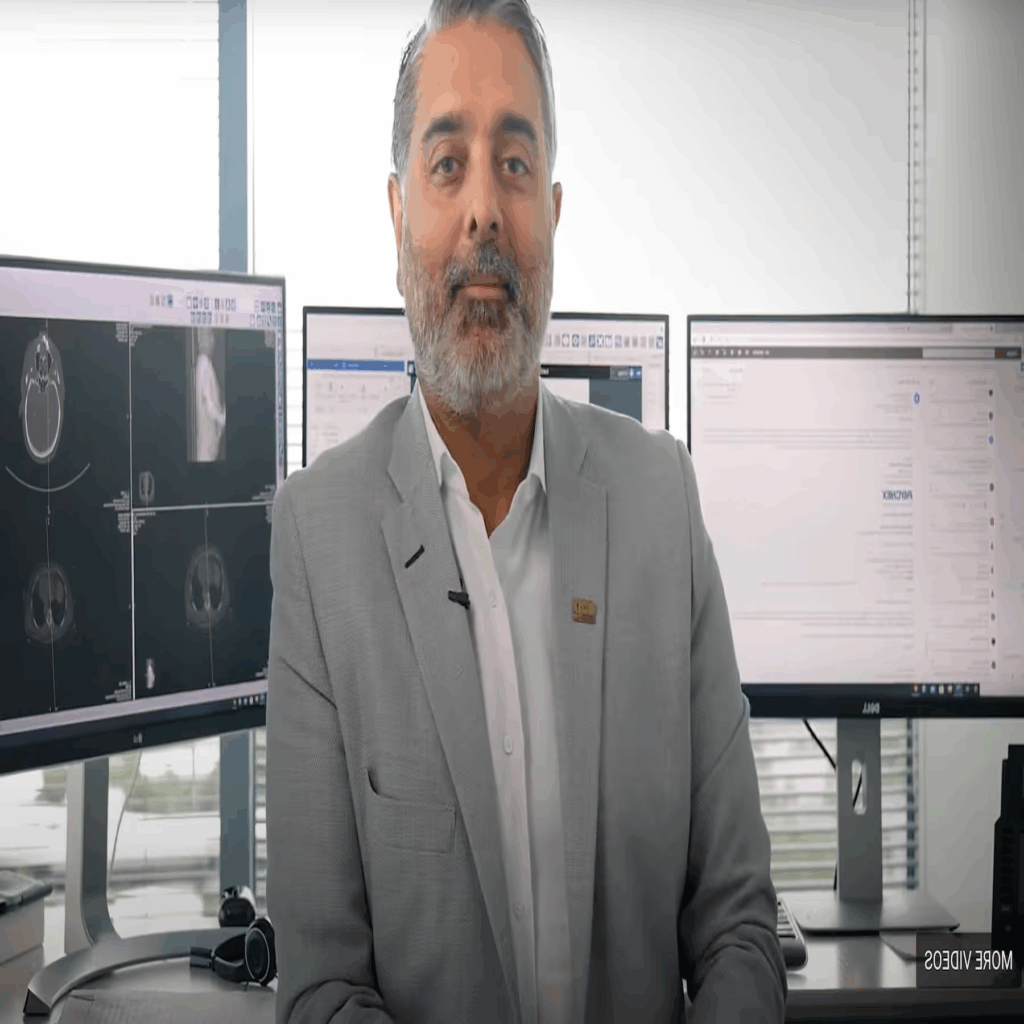Anand Lalaji is the co-founder and CEO of The Radiology Group. He has built a successful career by combining hard work, strong values, and a passion for excellence. Anand grew up in New York City, starting in Hell’s Kitchen and later moving to Queens and Long Island. His parents inspired him—his dad was a nuclear engineer and his mom was an OB/GYN.
Anand attended the Bronx High School of Science, where he played varsity baseball and volleyball. He then went to Binghamton University. There, he played volleyball as a setter and performed as a drummer in bands and jazz concerts.
Anand followed his dream of becoming a doctor. He went to medical school at SUNY Downstate Medical Center. He completed his internship at Chestnut Hill Hospital, which is part of the University of Pennsylvania. After that, he finished a radiology residency at Albert Einstein College of Medicine. He then completed a fellowship in musculoskeletal radiology at Wake Forest University.
Today, Anand leads The Radiology Group with vision and purpose. He is passionate about patient care and believes in using technology to improve healthcare. He also gives back through his foundation, which supports women’s leadership in sports, especially volleyball. His foundation also supports mental health programs and raises funds for cancer research, ALS, and pediatric cancer.
Outside of work, Anand enjoys golf, coaching, and snowboarding. He is a true example of how dedication, education, and passion can lead to success in life and business.
Q&A with Anand Lalaji: Lessons on Success
Q: You’ve had a long journey—from growing up in Hell’s Kitchen to becoming CEO of The Radiology Group. How has your upbringing shaped your view of success?
Anand Lalaji: Growing up in Hell’s Kitchen wasn’t easy. It was rough back then. We didn’t have much, and you had to learn quickly how to navigate challenges. My parents worked hard—my dad was a nuclear engineer and my mom was a practicing OB/GYN. They taught me early that education wasn’t optional—it was the way out.
Moving to Queens and then Long Island showed me how different people live. I learned how to adapt, whether it was fitting in at school or on the baseball field. Those early moves taught me resilience and flexibility. I don’t think success happens without those two things.
Q: You’ve followed a very traditional academic path—Bronx Science, Binghamton, medical school, residency, fellowship. Do you believe formal education is essential for success?
Anand Lalaji: Yes and no. Education opened doors for me, no doubt. Bronx Science pushed me hard. I remember pulling all-nighters for physics exams while still playing baseball and volleyball. At Binghamton, I kept that balance—studying while also playing volleyball and drumming in bands.
But it wasn’t just about grades. I learned teamwork as a setter in volleyball. I learned discipline as a musician—showing up to jazz rehearsals, keeping time, listening to others. Those experiences mattered just as much as any textbook.
In medicine, education is essential—you can’t fake your way through radiology. But even there, success comes down to how well you communicate, lead, and adapt, not just your degree.
Q: What’s one moment in your medical career that taught you the most about success?
Anand Lalaji: During my radiology residency at Albert Einstein, I had this moment that sticks with me. It was late at night, maybe 2 a.m. A young trauma patient came in after a car accident. I had to read the scans quickly and accurately.
I realized that all the studying, all the training, came down to this: Could I deliver under pressure? Could I take responsibility for someone else’s life in that moment?
That’s when success became less about titles or achievements and more about reliability. You have to be dependable when it counts.
Q: Today you lead a major radiology group. What’s been your biggest lesson in business success?
Anand Lalaji: Delegation. When we started The Radiology Group, I thought I had to do everything myself—overseeing cases, hiring, operations, you name it.
Eventually, I hit a wall. You can’t grow if you’re holding onto everything. I had to learn to trust others, to hire smart people, and let them run with their roles.
Another big lesson: The importance of mission. We focus heavily on rural healthcare and mental health. That’s not just branding. It gives the whole team purpose beyond profit, which keeps people engaged and aligned.
Q: Your foundation supports women’s leadership in elite sports, mental health, and cancer research. How does that connect to your personal definition of success?
Anand Lalaji: I’ve always believed success isn’t just about what you achieve, but what you enable others to achieve.
Supporting women’s volleyball came naturally. I played volleyball myself. I was a setter, which is literally about setting up others to score. It’s a position built on serving others. I see the same in leadership.
With mental health and cancer research, it’s personal too. I’ve lost people close to me to these diseases. I want our foundation to make a real impact—whether that’s helping an athlete stay in the game or funding research that saves lives.
Q: What advice would you give someone who’s struggling to define their own version of success?
Anand Lalaji: First, stop chasing someone else’s version of success. When I was younger, I thought success was just about degrees, titles, or money. But none of that will matter if you don’t like how you’re spending your time.
Second, be patient. I didn’t become CEO overnight. It took decades of school, training, late nights, and hard calls.
And finally, focus on consistency. Whether it’s drumming, volleyball, or reading medical scans, success is really just doing the small things right, day after day, until people start to call it talent or luck.

